Publikationen
-
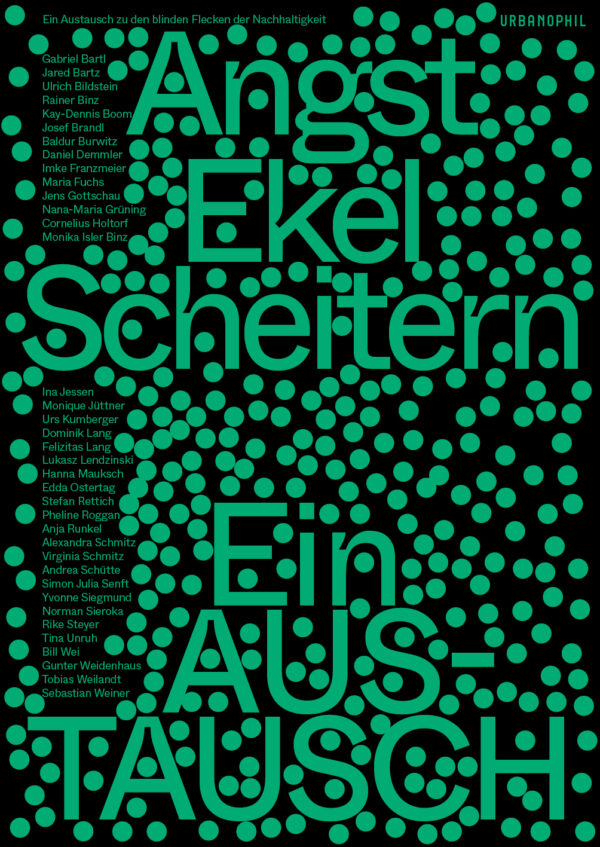 Ritual und Experiment – Versuch einer Annäherung an die Natur
Ritual und Experiment – Versuch einer Annäherung an die NaturDas Verhältnis von Mensch und Natur unterliegt einem ständigen Wandel. Galt die Natur lange als bedrohlich und fremd, entwickelte sich im 16. Jahrhundert die Idee vom Menschen im Einklang mit der Natur. Eine erneute tiefgreifende Veränderung dieses Verhältnisses geht mit der Industrialisierung und rapiden Urbanisierung seit dem 19. Jahrhundert einher. Die Mensch-Natur-Beziehungen geraten aus dem Gleichgewicht und gefährden das Überleben vieler Spezies, auch die des Menschen, auf diesem Planeten. Die seit den 1960er Jahren anhaltende Umwelt-debatte konnte daran bis heute nur bedingt etwas verändern. Vielmehr scheint eine anhaltende Unfähigkeit – ein „blind spot“ – zu bestehen, sozio-ökologische Beziehungen zu unserem Lebensraum (wieder) herzustellen und zu unterhalten. Es stellt sich die dringliche Frage, wie wir uns wieder an die Natur annähern können und welche Strategien dafür hilfreich erscheinen.
-
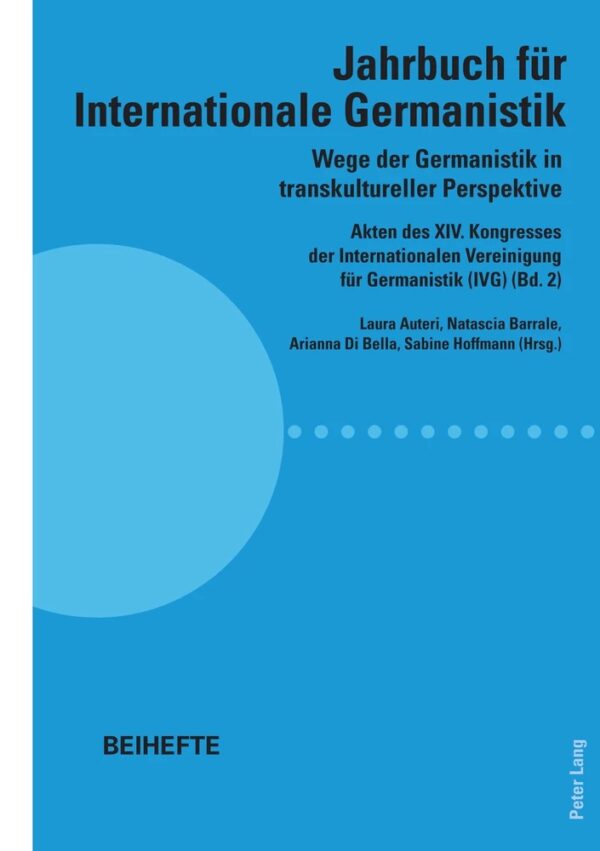 Digitale Räume als Aushandlungsort für Zentralität und Marginalität
Digitale Räume als Aushandlungsort für Zentralität und MarginalitätIn Auteri, Laura, Natascia Barrale, Arianna di Bella & Sabine Hoffmann (eds.) Jahrbuch für internationale Germanistik. Wege der Germanistik in transkultureller Perspektive. Akten des XIV. Kongresses der Internationalen Vereinigung für Germanistik (IVG) 6: 511-515. Bern: Peter Lang Verlag.
-
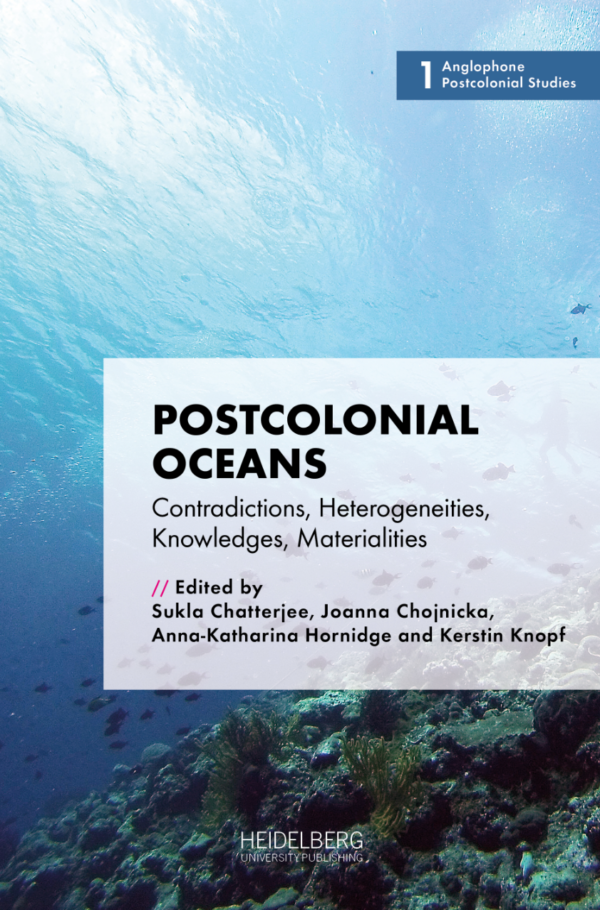 Postcolonial Oceans. Contradictions, Heterogeneities, Knowledges, Materialities
Postcolonial Oceans. Contradictions, Heterogeneities, Knowledges, MaterialitiesThis book contributes to the study of oceans, seas, coastal waters, and rivers within blue humanities by broadening, circulating, and interweaving knowledge about such waters, ocean epistemologies, and sea narratives from pluriversal epistemological, geographical, cultural, and disciplinary perspectives. The contributors from Africa, Asia, the Caribbean, Europe, North America and the Pacific explore the interconnections between oceans, coastal areas, rivers, humans, animals, plants, organisms, and landscapes in the fields of cultural history and cultural studies, critical race and postcolonial studies, marine and environmental studies, linguistics, literature, film and media studies.
-
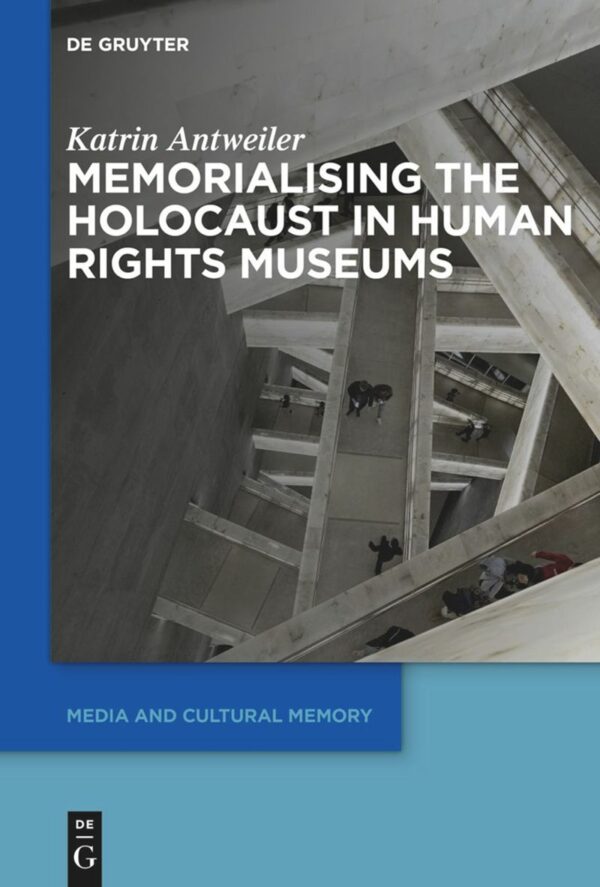 Memorialising the Holocaust in Human Rights Museums
Memorialising the Holocaust in Human Rights MuseumsThis book provides an analysis of the forms and functions of Holocaust memorialisation in human rights museums by asking about the impact of global memory politics on how we imagine the present and the future. It compares three human rights museums and their respective emplotment of the Holocaust and seeks to illuminate how, in this specific setting, memory politics simultaneously function as future politics because they delineate a normative ideal of the citizen-subject, its set of values and aspirations for the future: that of the historically aware human rights advocate. More than an ethical practice, engaging with the Holocaust is used as a means of asserting one’s standing on „the right side of history“; the memorialisation of the Holocaust has thus become a means of governmentality, a way of governing contemporary citizen-subjects. The linking of public memory of the Holocaust with the human rights project is often presented as highly beneficial for all members of what is often called the „global community“. Yet this book argues that this specific constellation of memory also has the ability to function as an exercise of power, and thus runs the risk of reinforcing structural oppression. With its novel theoretical approach this book not only contributes to Memory Studies but also connects Holocaust memory to Studies of Global Governmentality and the debate on decolonising memory politics.
-
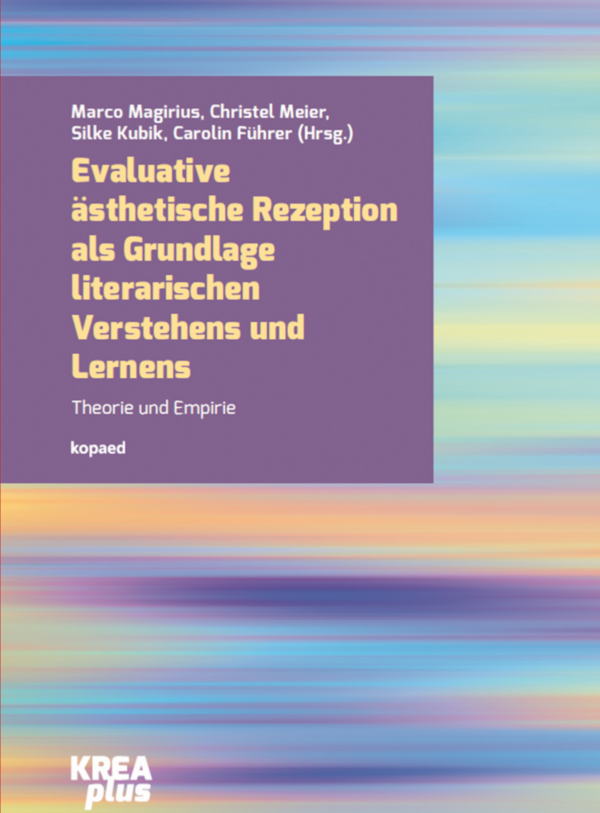 Gänsehaut, Liebe und Langeweile. Sprachliche Konstitution von Emotionen in Laienbuchrezensionen aus dem Schullektürekanon
Gänsehaut, Liebe und Langeweile. Sprachliche Konstitution von Emotionen in Laienbuchrezensionen aus dem SchullektürekanonIn Meier, Christel, Carolin Führer, Marco Magirius & Silke Kubik (eds.) Evaluative ästhetische Rezeption als Grundlage literarischen Verstehens und Lernens: Theorie und Empirie (KREAplus Band 28) 243–256. Muenchen: kopaed. ISBN: 978-3-96848-095-4
-
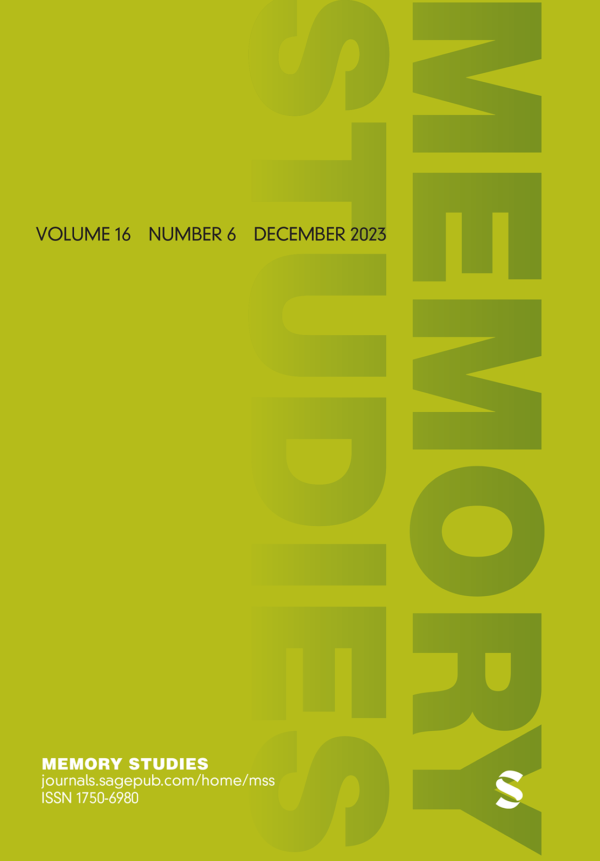 Why Collective Memory can never be Pluriversal. A Case for Contradiction and Abolitionist Thinking in Memory Studies
Why Collective Memory can never be Pluriversal. A Case for Contradiction and Abolitionist Thinking in Memory StudiesBringing together memory studies with the emerging field of contradiction studies, in this article, I suggest the need for an alternative way of thinking about collective memory by juxtaposing the ideal of wholeness that necessarily underlies any group’s identity with that of the inevitable contradiction of the plurivers. I discuss the power of the Western narrative order in regard to the Haitian Revolution and examples of mnemonic disharmony in contemporary Germany and seek to illuminate the epistemic violence constitutive of this narrative order. The article therefore interrogates memory study’s epistemological foundation and the practices in which these underpinnings result. The aim is to highlight the potential of contradiction in an attempt to pluriversify responses to the past as well as future visions for the worlds we live in. Special attention is paid to the question of what it is we hope for when attempting to (scholarly) contribute to making collective memory more inclusive, and where the limitations of this might lie. The purpose of my contribution, then, is to explore the tacit imperative of harmony that often remains unchallenged in memory studies, and to propose a shift in focus, from the ways in which memory might help us understand (e.g., current clashes of identities), toward a research agenda that is considerate of its own entanglements with power, yet, at the same time, lives up to its potential to contribute to transformation.
-
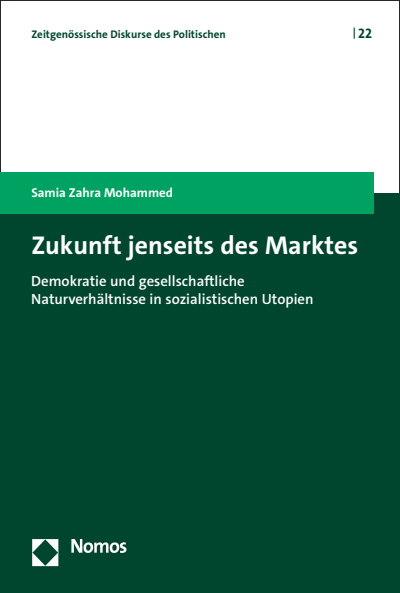 Zukunft jenseits des Marktes. Demokratie und gesellschaftliche Naturverhältnisse in sozialistischen Utopien
Zukunft jenseits des Marktes. Demokratie und gesellschaftliche Naturverhältnisse in sozialistischen UtopienDie Krisenhaftigkeit demokratischer Ordnung und gesellschaftlicher Naturverhältnisse im Zeitalter des Kapitalozäns belebt Debatten um Wirtschaftsmodelle jenseits kapitalistischer Marktwirtschaft gegenwärtig wieder.
-
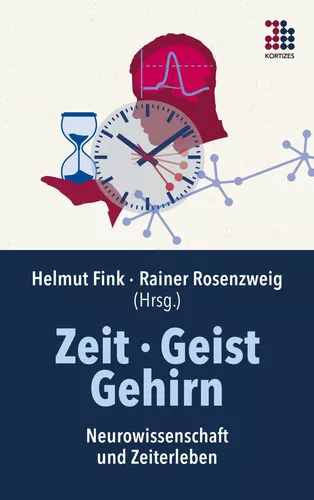 Zeitliche Vielfalt – Erscheinungsformen von Zeit und die Aufgabe der Philosophie
Zeitliche Vielfalt – Erscheinungsformen von Zeit und die Aufgabe der PhilosophieTagungsband zum Symposium Zeit · Geist · Gehirn. Neurowissenschaft und Zeiterleben 2021.
-
 Widerspruchsresponsive Nachhaltigkeit
Widerspruchsresponsive NachhaltigkeitVerfassungsblogbeitrag: Das Freihandelsabkommen der EU mit Neuseeland verpasst die Etablierung eines kritischen Nachhaltigkeitsbegriffs.
-
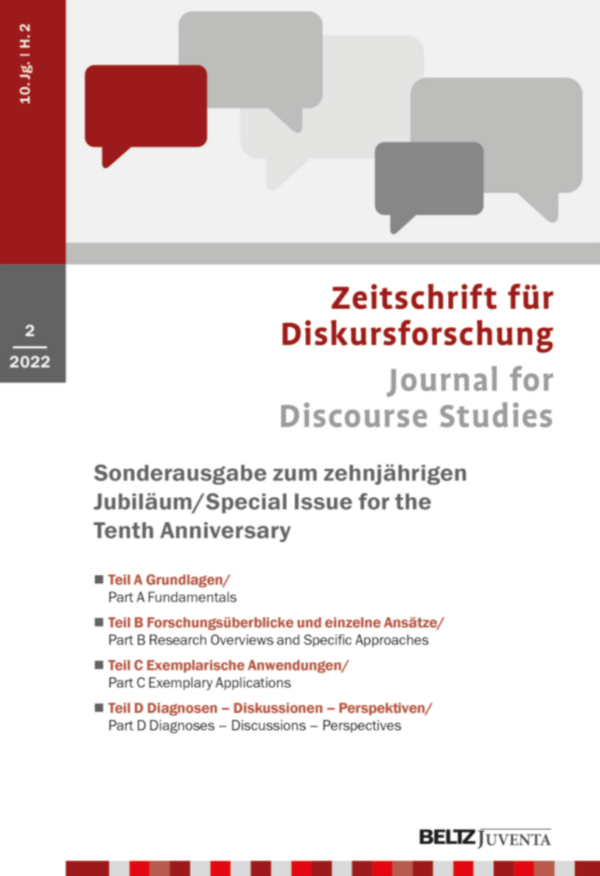 Mythos Zuhören – Bemerkungen zur Diskursphänomenologie gerichteter Aufmerksamkeit
Mythos Zuhören – Bemerkungen zur Diskursphänomenologie gerichteter AufmerksamkeitAusgehend von der Omnipräsenz beschönigender Rede über Zuhören fragt der Essay nach dem Beziehungsgeflecht von Zuhören und Diskurs. Einem verbreiteten Mythos, in dem Zuhören isoliert als replikative Handlung verstanden wird und Unwägbarkeiten des Zuhörens systematisch überdeckt sind, wird die Annahme gegenübergestellt, dass Zuhören Sprache im Widerspruch ist und als solche konstitutiv für Diskurse und vice versa. Gefragt wird nach Möglichkeiten einer Soziolinguistik des Zuhörens und insbesondere nach einer konzeptionellen Einordnung des Zuhörens im Spannungsfeld von Positivität der Rede und Intentionalität des Zuhörens. Ich spreche von Diskursphänomenologie, ohne zu übersehen, dass damit eine auch wissenschaftshistorische Gegenüberstellung von Diskursanalyse und Phänomenologie aufgebrochen wird.
-
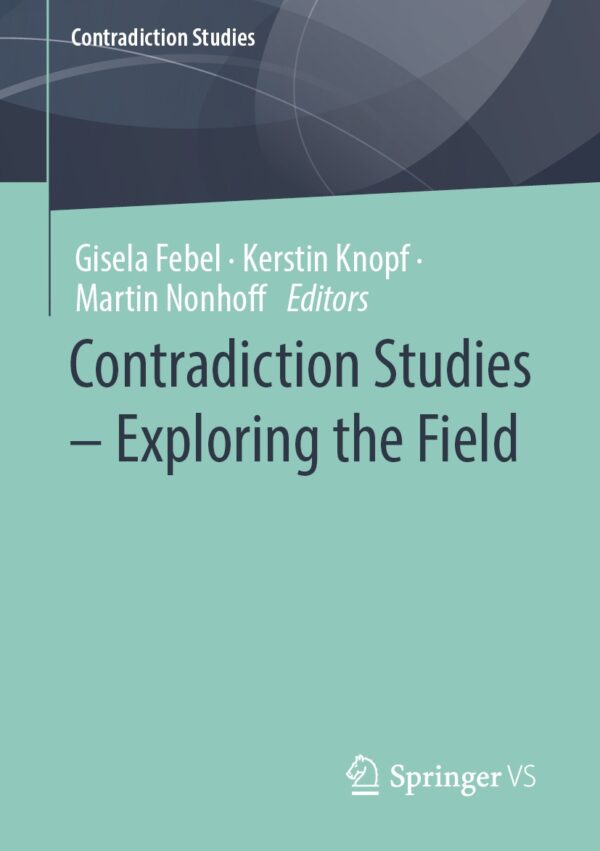 Contradiction Studies – Exploring the Field
Contradiction Studies – Exploring the Field“Contradiction” is a core concept in the humanities and the social sciences. Beside the classical ideas of logical or dialectical contradiction, instances of “lived” contradiction and strategies of coping with it are objects of this study. Contradiction Studies discuss the many ways in which explicit or implicit contradictions are negotiated in different political or cultural settings. This volume collects articles that tackle the concept of contradiction, practices of contradicting and lived contradictions from a number of relevant perspectives and assembles contributions from linguistics, literary studies, philosophy, political science, and media studies.
-
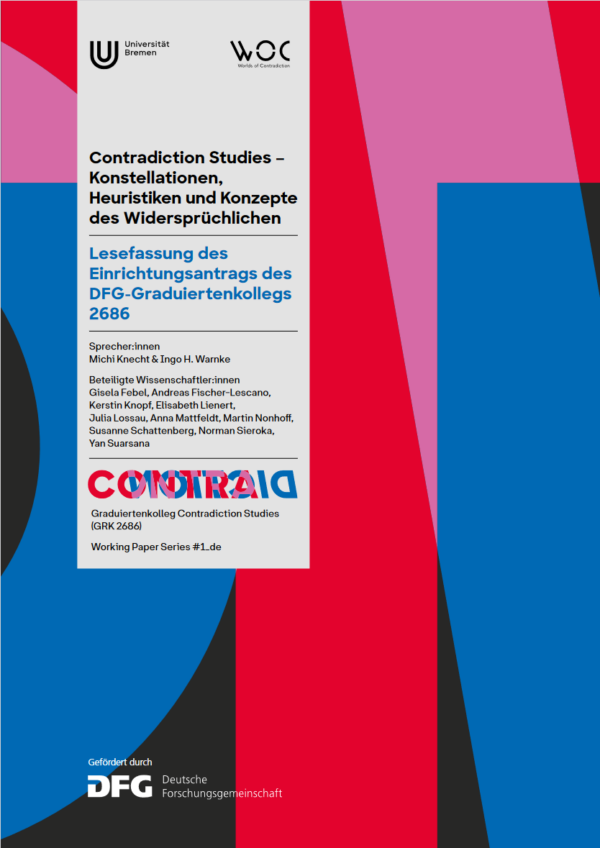 Working Paper „Einrichtungsantrag Contradiction Studies – Konstellationen, Heuristiken und Konzepte des Widersprüchlichen, Lesefassung“
Working Paper „Einrichtungsantrag Contradiction Studies – Konstellationen, Heuristiken und Konzepte des Widersprüchlichen, Lesefassung“Das Graduiertenkolleg 2686 Contradiction Studies erforscht die Herausbildungen, Aushandlungen und Erklärungsgrenzen von Widerspruch.
Ausgangspunkt ist die Annahme, dass die Ordnungsfigur des Widerspruchs mit dem Gebot der Widerspruchsauflösung häufig in einem Spannungsverhältnis zu alltäglichen Erfahrungen von Widersprüchlichkeiten des Zusammenlebens steht. Konstellationen von Widerspruch, Widerspruchsvermeidung, Widersprüchlichkeiten und Praktiken des Widersprechens werden deshalb systematisch erforscht und als Untersuchungsgegenstände der Geistes-, Sozial- und Rechtswissenschaften etabliert. Das Kolleg verbindet diskurs-, narrations- und textzentrierte Ansätze mit ethnographischen und anderen qualitativ-empirischen Methoden. Auf der Grundlage von Fallstudien und genealogisch oder analytisch orientierten Projekten leistet das Kolleg Begriffs- und Theoriearbeit. Diese zielt darauf, Widerspruch, Widersprüche und Widersprechen in ihren empirischen Konstellationen, heuristischen Funktionen
und ontologischen Dimensionen neu zu bewerten – auch in Antwort auf post- bzw. dekolonial verortete Diskussionen zur Kosmopolitisierung der Wissensproduktion.
-
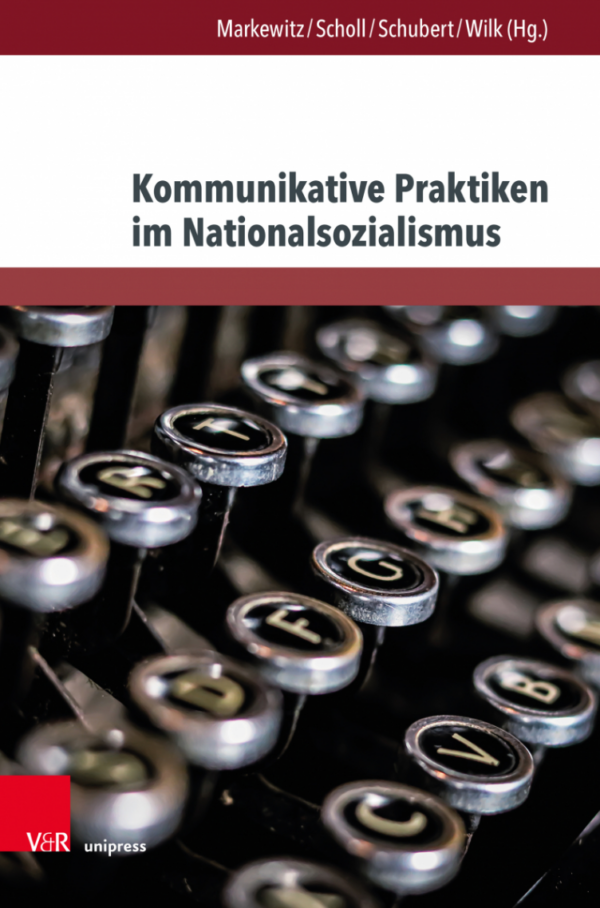 Multidirektionale Lexik in der Diskursgeschichte des 20. Jahrhunderts
Multidirektionale Lexik in der Diskursgeschichte des 20. JahrhundertsIn Friedrich Markewitz, Stefan Scholl, Karsten Schubert & Nicole Wilk (eds.), Kommunikative Praktiken im Nationalsozialismus. 173–205. Göttingen: V&R unipress. ISBN: 978-3-7370-1612-4
-
 Agency and Incentives of Diasporic Political Influencers on Facebook Malawi
Agency and Incentives of Diasporic Political Influencers on Facebook MalawiThis article examines the agency and incentives that drive the activism of diasporic political influencers on “Facebook Malawi,” an online imagined political community. In their seminal work on “social media dissidents” and “social media self-made activists” in the Global South, Matsilele and Sharra demonstrate that social media activists engage with different strategies to initiate movements, mobilize citizens, and create their brands in strong opposition to authoritarian regimes which repositions them as freedom fighters in the eyes of the masses and enemies of the state. Correspondingly, we frame diasporic political influencers as actors aided by digital technologies who engage in “long-distance nationalism” on Facebook against authoritarianism in the homeland. We deploy a qualitative mixed methods approach to analyze Facebook data of two diasporic political influencers, Onjezani Kenani and Manes Winnie Hale, who gave informed consent to use their Facebook data generated in 2018 and 2021, a period preceding and following the 2019 Malawi tripartite elections. A thematic analysis of 250 Facebook posts and interview data with the two influencers illustrates how they exercise their agency in their quest for a vision of a better Malawi while navigating a complex and ambivalent web of online and offline threats, incentives, and interests. Implicated in the political communication and mobilization of the two are different strategies that include verbal inventiveness, trolling, and exposing. The article also shows how the concept of long-distance nationalism needs to be adapted in studying diasporic political influencers.
-
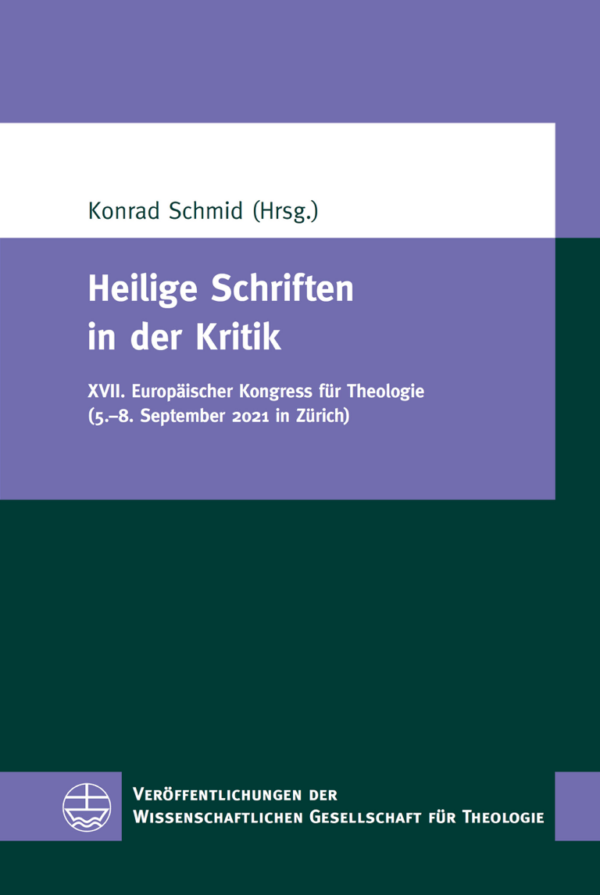 Aristokratie der Buchreligionen? Heilige Schriften aus religionswissenschaftlicher Perspektive
Aristokratie der Buchreligionen? Heilige Schriften aus religionswissenschaftlicher PerspektiveIn Konrad Schmid (ed.) Heilige Schriften in der Kritik. XVII. Europäischer Kongress für Theologie (5.-8. September 2021 in Zürich). 643-658. Leipzig: Evangelische Verlagsanstalt. DOI: 10.5771/9783374072286
-
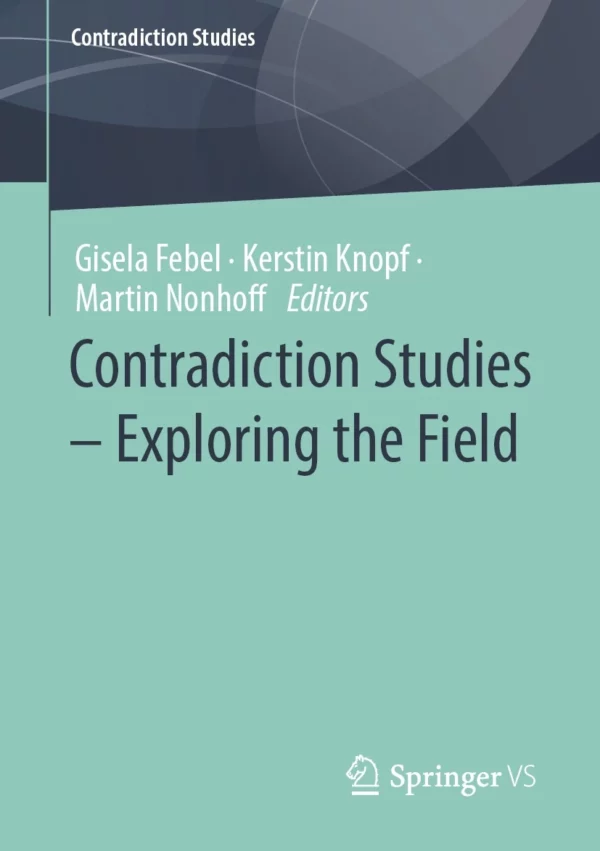 Contradiction Studies – Exploring the Field. An Introduction
Contradiction Studies – Exploring the Field. An IntroductionSince antiquity in Greece, the Law of Non-Contradiction (LNC) is considered to be the foundation of all philosophy. As Aristotle maintains in Metaphysics, “the same attribute cannot at the same time belong and not belong to the same thing and in the same respect” (1005b, 19–23).
-
 Neues Wahrnehmen
Neues WahrnehmenManege für Architektur (Heft 2: Automationen). 36-37. https://mfa.one/manege-2/
-
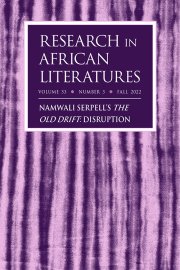 Introduction. Namwali Serpell’s The Old Drift: Disruption
Introduction. Namwali Serpell’s The Old Drift: DisruptionResearch in African Literatures 53(3). 1-22. https://www.muse.jhu.edu/article/900030
-
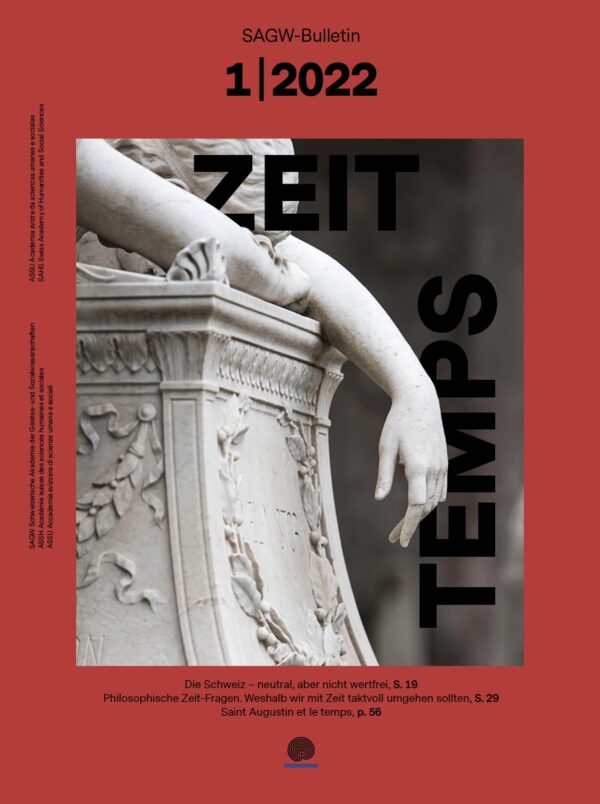 Philosophische Zeitfragen. Weshalb wir mit Zeit taktvoll umgehen sollten
Philosophische Zeitfragen. Weshalb wir mit Zeit taktvoll umgehen solltenZeit spielt eine grundlegende Rolle im menschlichen Leben. Zu bestimmen, was ihr Wesen ausmacht, ist bekanntermassen nicht einfach – und ist vielleicht auch nicht die philosophisch interessanteste Herausforderung. Wichtiger scheint es, verschiedene Lebensbereiche zunächst auf ihre unterschiedlichen Zeitauffassungen hin zu untersuchen und sich zu fragen, wie sie sich aufeinander beziehen. Für unseren Umgang mit Zeit ist das Entscheidende: Wie lassen sich Ereignisse sinn- und taktvoll aufeinander abstimmen?
-
 Philosophie der Physik. Eine Einführung
Philosophie der Physik. Eine EinführungDieser Band bietet eine systematische und allgemeinverständliche Einführung in philosophische Fragestellungen der Physik und ihre historische Entwicklung. Er beginnt mit der Darstellung wichtiger Stationen der Physikgeschichte in der Antike, der Frühen Neuzeit und der vergangenen zwei Jahrhunderte und zeigt an ihnen zentrale erkenntnistheoretische Merkmale der Physik auf. Diskutiert werden typische Erklärungsstrategien, die Rolle von Experimenten und Vorhersagen, das Vorgehen bei der Begriffs- und Theoriebildung und die Bedeutung der Mathematik.